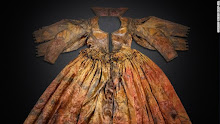We're completing the final part of “The Woman I Love” (excerpt from my book in progress)...and featuring a bit of Prince Harry's family legacy.
The Woman I Love
{part three of three*}
Was Diana’s real “duty” as
princess—the underlying essence of her life mission—to show how there is always
a place for love and that being heart-centered can only strengthen and give
pleasure to one’s sense of “duty”? Was part of her monarchic purpose to bring
the shadowy emotional inheritance from King Edward into the light, even
revealing an intriguing connection to her and the conspiratorial theories about
how he was maneuvered from the throne? “In the abdication crisis of Edward
VIII,” Jungian analyst Ian Alister asserts in When a Princess Dies, “there was a conflict between the steady,
reliable—what I call ‘thinking’—qualities required by the collective
institution of monarchy and the more unpredictable personal qualities—which I
characterize as ‘feeling qualities’—represented by the individual. Edward
favoured feeling (Wallis Simpson) ahead of thought (his kingly duty). I suggest
that Diana re-awoke this conflict in the House of Windsor.”
Indeed, Diana awoke a ‘relationship
of the heart’ revolution in the House
of Windsor! Diana’s was a revolution that was to reveal how one does not have
to sacrifice personal happiness for the privilege of doing one’s duty.
Bond also
recalled a conversation she’d had with Princess Diana: “Diana once told me that
Camilla had always been the love of Charles’ life and that she’d been ‘very
loyal and very discreet.’” I was happy to read that for several reasons and, if
accurate, it was the first I read of Diana acknowledging to someone—in what
seemed a mature, thoughtful way—what she truly felt in her heart about Camilla,
and without rancor toward her husband. Here was a moment when Diana’s strong
“feeling” nature came into balance with a more thoughtful “thinking” nature.
(Is this, a reoccurring task we all have, perhaps the essential “life lesson”
of the ages?)
Diana
indeed carried the mantle for “bringing your heart” along into all situations
of life. And perhaps we’re still learning for ourselves what she was only
beginning to realize at the end of her life: To trust the intelligence of our
heart more than the emotions of our mind and that our body is wiser than our
head. So in that sense, “bring your heart” is to bring both love and wisdom.
Diana didn't get there herself, but it seems her former husband and both of their sons "bring their heart" into a vibrant life of service and devotion to their beloveds. All three "married for love" and the monarchy still stands. ~
{*Final part of "The Woman I Love"....excerpt from my book in progress, tentatively titled, A Memory of Love: The Spiritual Mission of a Princess.}





















No comments:
Post a Comment